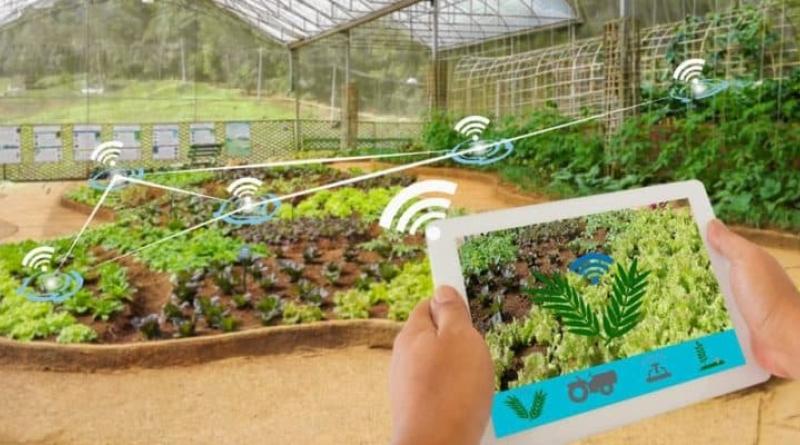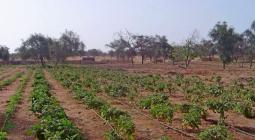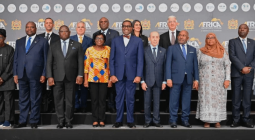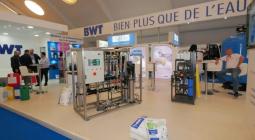MOROCCO: how agritech comes to the aid of agricultural productivity in the face of climate

A day dedicated to food systems and water took place this Sunday, December 10 at the COP28 village in Dubai. It was recalled during the workshops that at least 283 million people suffer from hunger in Africa even though the continent contains 65% of the world's arable land. A situation reflecting low agricultural productivity accentuated in recent years by the war in Ukraine and natural disasters which are causing the prices of basic foodstuffs to soar. In North Africa, particularly in Morocco where drought is drying up crops, technological solutions combining 5G, the cloud, big data and artificial intelligence (AI) are emerging and helping to improve agricultural practices. This green revolution is supported by technological giants, such as Huawei, which are supporting the ongoing transformation in the “agritech” sector.
Agritech, a single word that combines agriculture and new technologies. This concept, which is already on the rise in Southeast Asia and Europe, is starting to gain momentum in North Africa, particularly in Morocco. In a context where traditional agriculture is severely tested by climatic hazards and armed conflicts across the world, agritech makes it possible to respond to the challenges of agricultural productivity and resource management using digital technology. In fact, more than 70% of fresh water on the planet is used for agriculture. The Food and Agriculture Organization of the United Nations (FAO) predicts that this consumption will increase by 50% with the demographic transition announced for 2050. However, the scarcity, poor use and quality of water, not still very good quality, pose problems. In this context, agrotechnology makes it possible, for example, to water fields remotely using the strictly necessary quantity of water in order to limit wastage of the resource. We are therefore talking about intelligent irrigation.
In this regard, the Chinese telecommunications giant Huawei has launched the Smart Irrigation project in Morocco. The objective is to install sensors on the ground to measure humidity, temperature, electrical conductivity and even the salinity of the water. A saving in water waste of more than 60% has already been achieved thanks to this project within the Sherifian kingdom where water stress is beginning to dictate its law.
Smart agriculture, the keystone for food security in the face of climate?
Neighboring Algeria is also affected by this agricultural challenge in a context of prolonged drought. In 2021, for example, the cereal harvest fell by 38% due to low rainfall, according to the FAO. However, durum wheat is widely consumed in this North African country, representing 46% of cultivated areas, according to the report from the United States Department of Agriculture (USDA). Technological innovation also makes it possible, through sensors and drones, to monitor fields and detect anomalies. This collected data can be transmitted in real time to farm owners. This is also what the Algerian start-up SevenG is doing via its FarmAI solution.
The young company, which won second prize in the final of the Tech4Good global competition organized by Huawei, uses drones to monitor the health of wheat fields. Specifically, the FarmAI solution aims to detect wheat rust disease early using artificial intelligence. It is after the analysis of a set of data that the farmer will be alerted via a mobile application so that he can preserve his crops and thus anticipate possible financial losses in his plots. Indeed, the smartphone is the key to agritech since it also allows the farmer to sell his crops online.
Training and financing of agritech in Morocco and elsewhere
But the use of all these digital solutions to be able to modernize agriculture requires specific usage techniques and therefore training. This is why Huawei equips young people with digital tools through the Huawei ICT Academy. In Morocco, for example, this program has already trained 13,000 students from 60 partner universities. The goal is to “stimulate digital transformation and bring more opportunities to tomorrow’s youth through different education programs ,” explains Adnane Ben Halima, Vice President of Public Relations at Huawei Northern Africa, in a column published on AFRIK 21.
However, financing this modern agriculture is crucial for a continent long accustomed to traditional techniques. Smart agriculture has been one of the most funded sectors over the past decade. According to the 2023 Agritech Investment Report, venture capital companies – which are the main financiers - invested $1.7 billion between 2013 and 2022 in agritech start-ups, or $636 million for 2022 alone. Moroccan startups are in the Top10 ahead of Tunisians, with fundraising reaching $19 million over the same period. Other funding comes from institutions such as the Netherlands Development Finance Corporation (FMO Ventures) which supports the climate resilience of smallholder farmers. This race towards the green revolution does not seem to be of much interest to other countries, particularly in East and West Africa, which would nevertheless benefit from digitalizing their agricultural productivity in view of the great demographic transition announced by the United Nations.
Article in partnership with Huawei





